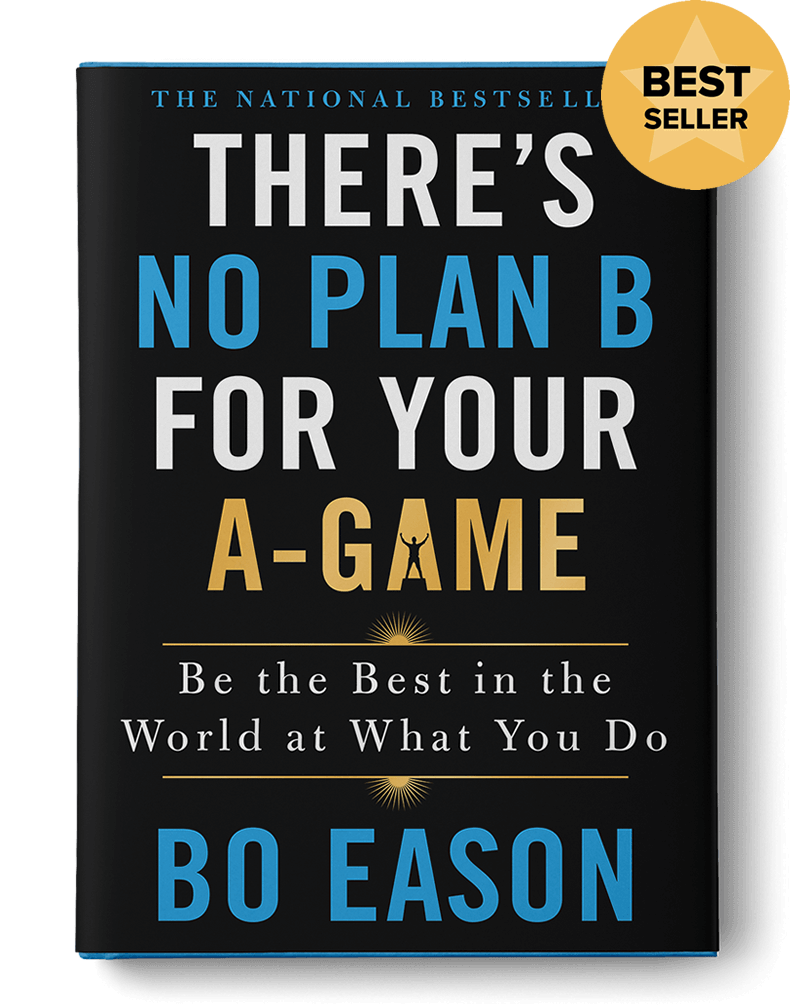Bo: Okay, we’re here with Dr. Joan Rosenberg. Joan, let’s just jump right into this—let’s work something out, unrehearsed. It’s a question I get all the time. I’m asking people to tell their story, of which, you know, the most poignant stories as we know are the dark ones, the ones that are the defining moment in your life, which makes us great in certain ways. A lot of times people say, “Well, Bo, if I’m going to tell that story then how am I going to keep from being trapped into that darkness of the story, when in reality I want to take my audience to an uplifted place or I want to take them in this direction. How am I going to get out of that dark place and take the audience back into the light? And I think that they’re just afraid that their content, whatever that might be, doesn’t match the scenario of the audience.
Joan: The first thing I would say is don’t allow the first time you tell the story to be telling it on stage—just absolutely not.
Bo: Haha! Okay. Tip #1—Don’t work your problems out in front of people.
Joan: Exactly. That is not the first time you do the story. No! Right? In fact, many times, in order for us to not get trapped into the emotion of it or the darkness of it, we actually have to be telling it over and over and over again, long before we get in front of an audience. So multiple tellings of the story become important. Don’t just tell it once; tell it multiple times. Write about it. Write about it many times. Engage your friends in it. Engage peers that are in the speaking realm with you or in a mastermind group with you, whatever they might be doing. Engage with your peers around it so that you’re getting it out and you’re telling it many more times then before you actually land on stage. The second thing that seems really important to me here is that you actually have an idea of where you want to go after you’ve hit that content. So where you’re afraid of getting trapped, have an idea of how you’re going to actually lift somebody back out of the experience. So it’s not going in like you’re going in fresh and I’m just going to tell the story and get trapped by all the feelings about it and now my audience is in all that with me. No, have an idea of where you want to go, whether it’s how you resolve the situation or how you thought through the situation or something like, “Boy, that was really ridiculous … how funny it is that I was caught there …” Not only have you taken them on that journey of struggle that you talk about all the time, but you also have some idea of where the lift is going to be—that you already have that sort of in mind, even if it’s not totally rehearsed.
Bo: Yeah, that’s great. You’re right. Think of every movie that you’ve ever seen. Every movie that you’ve ever seen never starts at the top of the hill. It always starts at the bottom of the hill. And then throughout the movie, which is why it takes two hours, they’re struggling up that hill and the last frame of the film is them on top of the hill. Think of your story in the same way. You’re starting at a low point because it’s almost impossible to start at a high because no one really cares if you’re on top of Mount Everest. They care that you’re at the bottom of Mount Everest. That’s the only thing watchable.
Joan: And if I go on the journey with you now I have the sense that I can do it too.
Bo: That’s really good, Joan. So the question is, “Bo, how come I’m getting trapped in the emotion of this low point in my life?” It’s because you don’t have the uplifting end, the resolution, like how you come out of that, right? That’s it.
Joan: Again, and that’s it’s not the first telling.
Bo: Right. Plenty of rehearsals, plenty of practice. Got to work that out. Listen, you cannot get on stage or in front of a camera and try to work out your life. You’ve got to do that backstage. You’ve got to do that in private rooms and in rehearsals. That’s why you practice.
Joan: That’s right.
Bo: Okay, good. Thanks. I’m happy that you’re willing to work these things out live on camera.
Joan: Love it. Love it. It’s part of the journey.
Bo: Yeah, you don’t have to remember anything.
Joan: And it’s not practiced. It’s like we’re doing the practice. This is what you always talk about. This is putting the time in. It’s doing the practice.
Bo: Right. All right, Joan. Thank you.
RELATED POSTS

